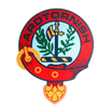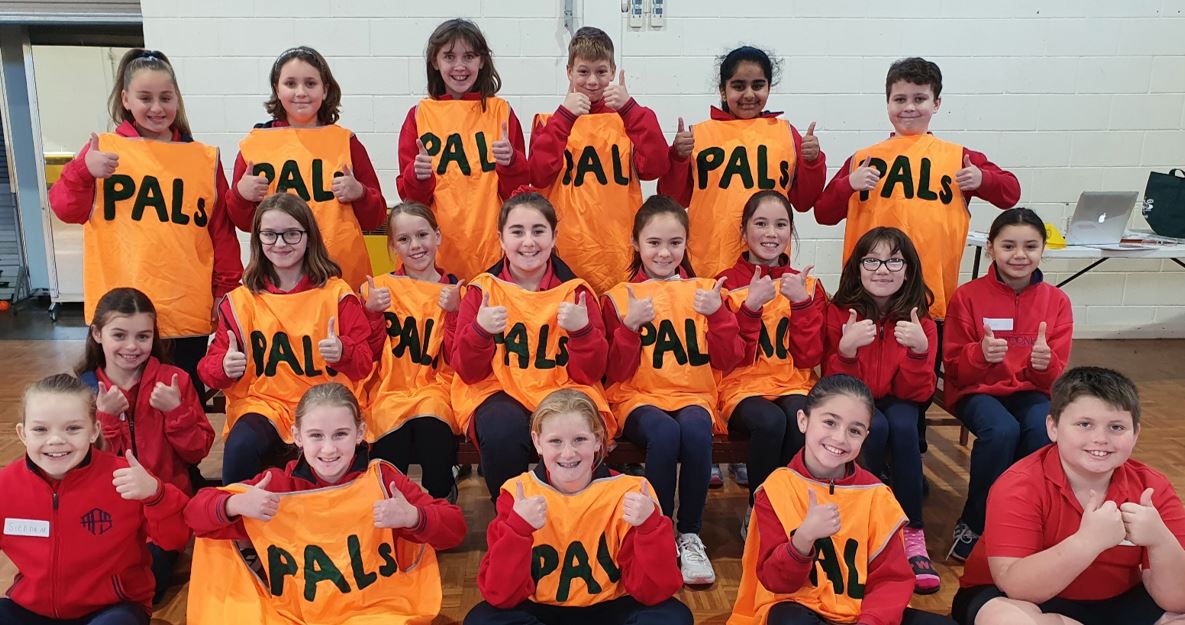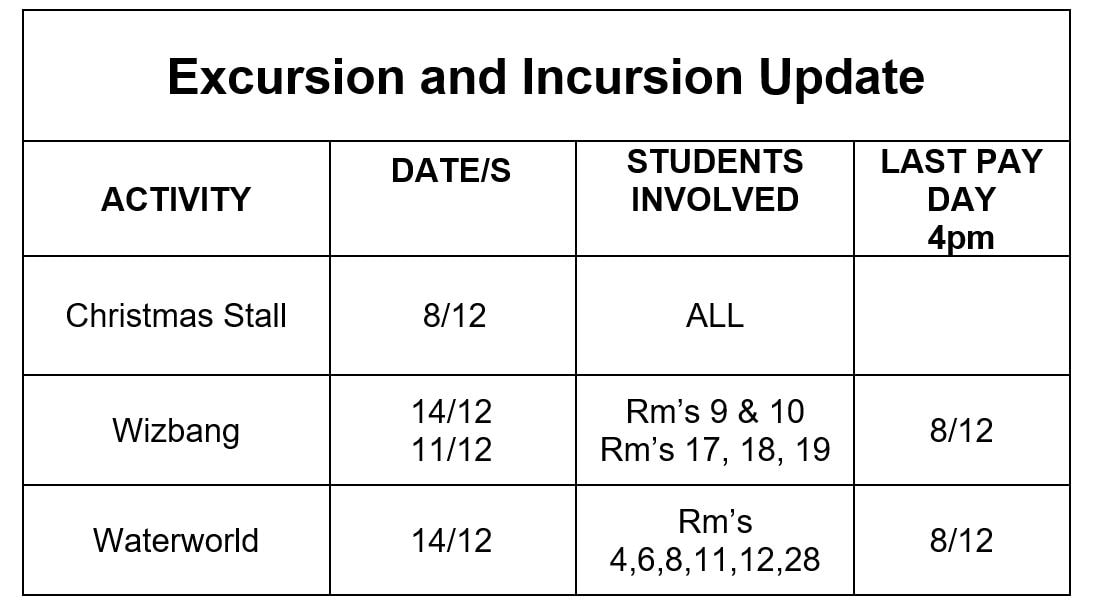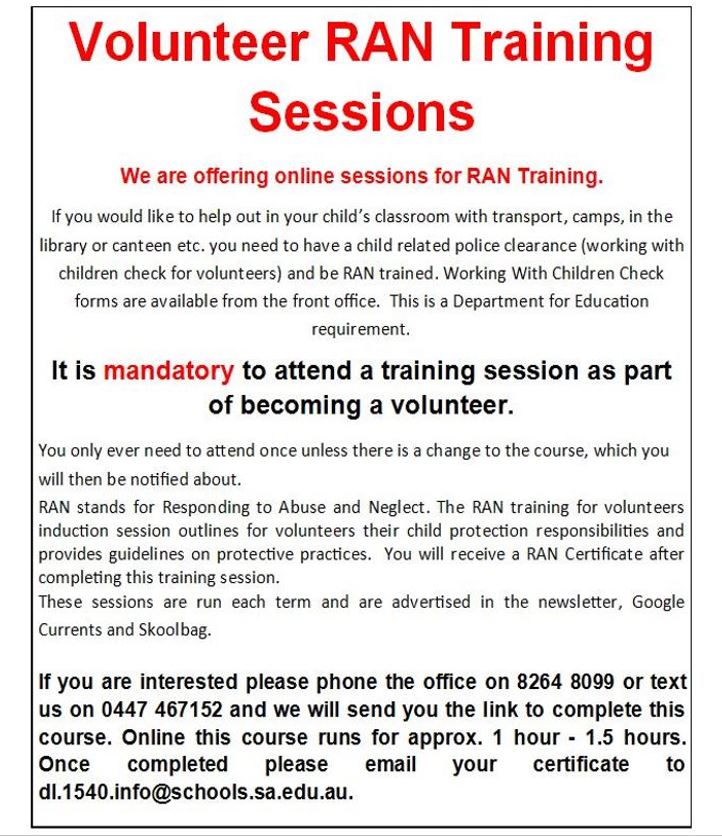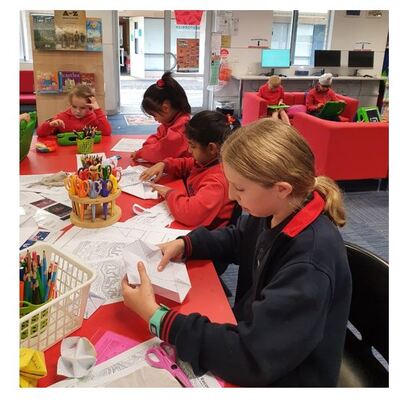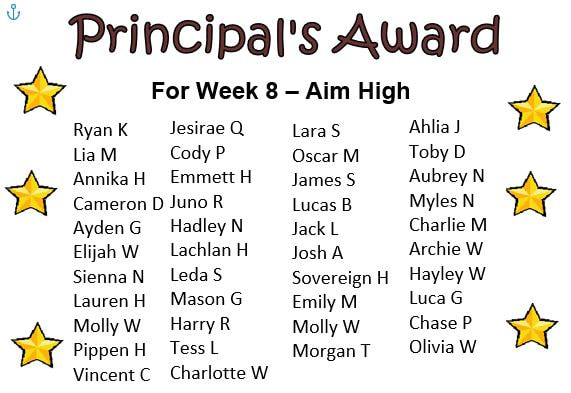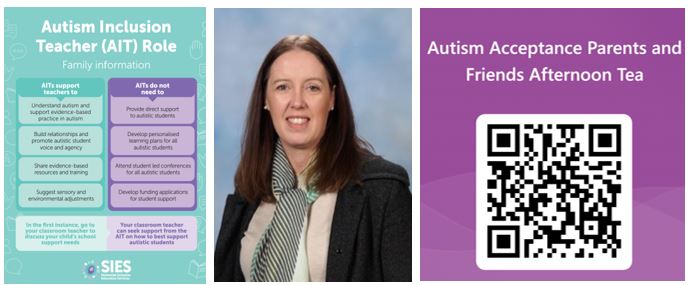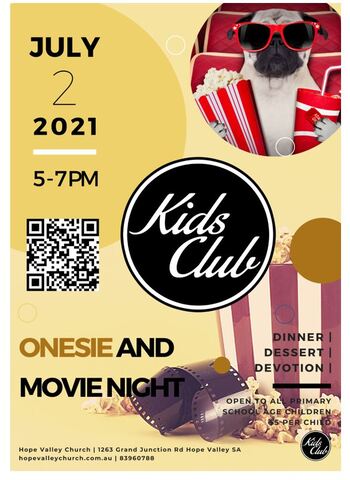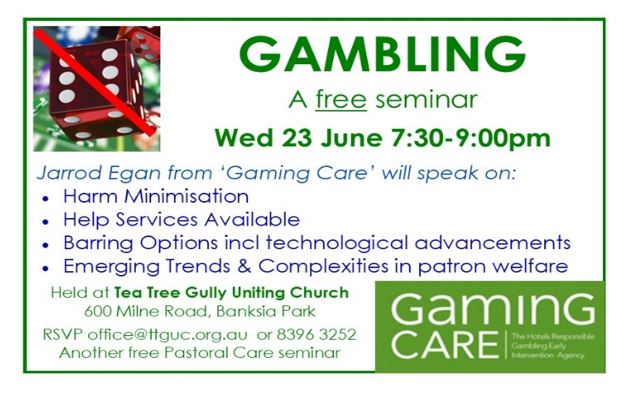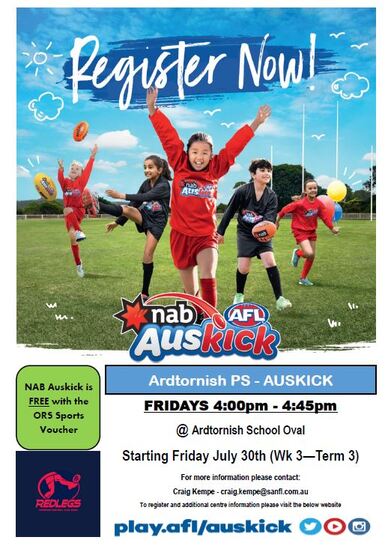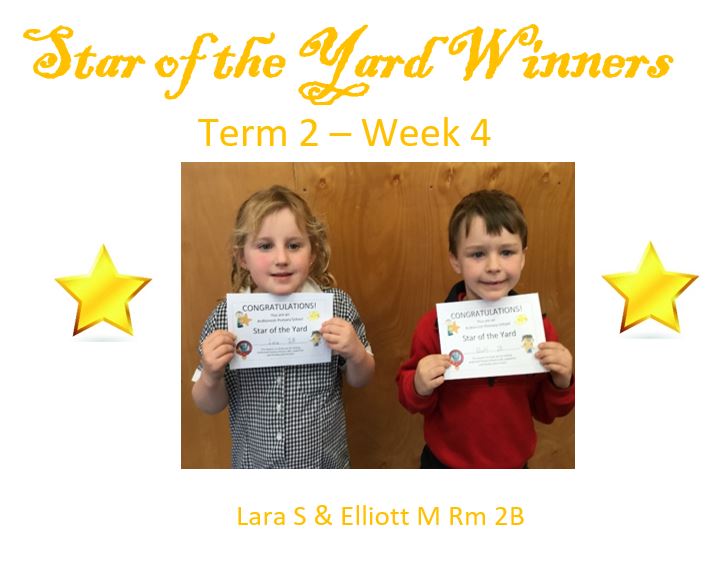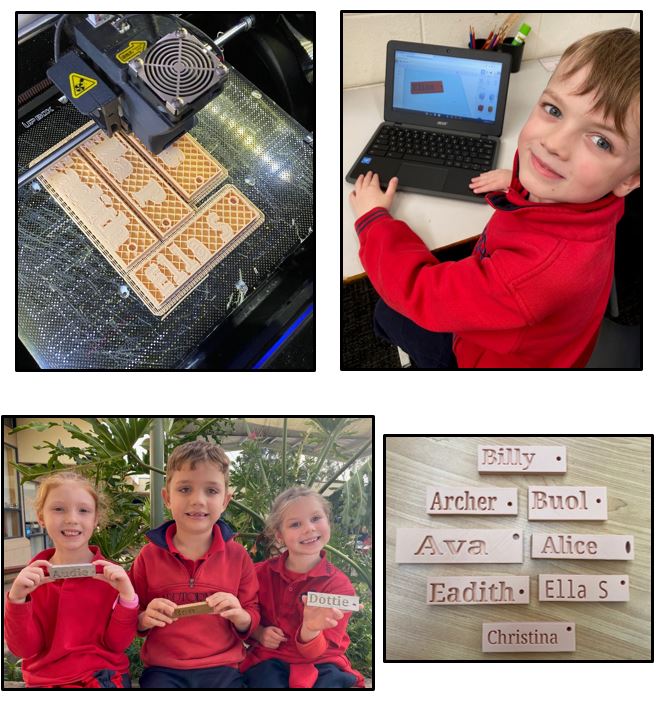In this issue
Diary Dates
June 14/6 – Queen’s Birthday 15/6 – Author Visit 6/7 16/6 – KO Boys Netball Carnival 17/6 – Author Visit 6/7, Grounds Meeting 3.15pm 18/6 – Jam Band Incursion, Pedal Prix, Girls Football Carnival 21/6 – Governing Council 7pm, State Football Yr 6 22/6 – JP Swimming (Tue-Fri) 23/6 – Room3 / 4 Narnu Farm Camp, State Footy Carnival Yr 6/7 26/6 – Dance & Hip Hop State Finals 27/6 – Cheer & Aerobics July 2/7 – Assembly 10am, LAST DAY TERM 2 – 2.00pm Dismissal Road Crossing
Monitors Wed 23rd June – Tue 29th June Jade O, Kaylee R, Tilly-Rose P Wed 30th June – Fri 2nd July & Mon 19th & Tue 20th July Zoey E, Samuel d, Tammy V Wed 21st July – Tue 27th July Maddison H, India S, Siana D Please arrive by 8.25am |
PALs Make Lunchtimes BetterPALs, the ‘PLAY at LUNCH TIME’ support program began last week. PAL’s is designed to assist students in Junior Primary to engage with a range of different play activities with the support of a student leader from Years 4 or 5. 21 students from Yrs 4 & 5 wrote some fantastic applications explaining why they wanted to be PAL’s mentors and what skills they would bring to the role, they then undertook 1/2 a day of training.
PALs wear brightly coloured vests to identify themselves. A PAL’s program provides leadership opportunities to older students and reduces bullying behaviours amongst younger children as, with the mentors support, they learn how to play games and undertake lunch time activities in a cooperative manner. The ability to successfully play with others is a skill, and conflicts are reduced when students are explicitly taught to play games, with clear rules, and resolve conflicts with the support of older students. PAL leaders introduce students to a range of games. The leaders are trained in organising up to 30 different games. Some involve just simple movements while others require the use of equipment. The leaders carry game cards that explain the rules and procedures for each activity. In the early years, conflicts between students can often arises when children lack the social development to negotiate joining play groups and so engaging in games with the support of an older child is a great way to enhance their skills. The program encourages: · A fun inclusive environment where everyone is valued and their needs are met · Safe play and emotional health and wellbeing · Students to learn new activities that are stimulating, challenging, matched to their ability levels and increase their physical activity · A positive school ethos and social cohesion as it builds students confidence and self-esteem. |
Canteen RosterTuesday 15th Mary-Anne R
Wednesday 16th Mary-Anne R, Deneice P Thursday 17th Ling C, Evelyn C, Jenni F, Emma J Friday 18th Natasha H, Wei Wei R, Emma J, Jenni F Tuesday 22nd Michele S Wednesday 23rd Mary-Anne R Thursday 24th Tui M, Deneice P Friday 25th Rhonda P, Stacey C, Emma J National Reconciliation Week
By Gargee VYAS Room 9 Year 6 Student and SRC Executive Introduction Every year Reconciliation Week is on the 27th of May to the 3rd of June. This year, the theme is 'more than a word'. Reconciliation week is about respecting Aboriginal people and their cultures. As most people know, the Aboriginal peoples were the first people of Australia. Non-indigenous people treated them wrongly for decades. Reconciliation week is about reconciling with these people. Though we've come a lot further, we still need to keep going. The week falls between two significant milestones in reconciliation, the 1967 referendum and the High Court Mabo decision. We all need to remember not to judge people by their race, skin culture or background. Ways to celebrate Reconciliation week A great way to celebrate is to participate in activities that the school holds. Activities such as colouring, making chatterboxes and some fun outdoor activities are conducted by our school. But what are some out of school ways? We can also celebrate by recognizing and doing aboriginal dot painting. The Referendum in Mabo decision On May 27, 1967 Australians voted in favour of changes to our constitution, involving indigenous rights to improve the services available for them. The change was focused on two sections of the constitution that discriminated against Aborigines. About 90.77% Australian citizens voted "yes" to change. This came to be known as the 1967 referendum. On the 3rd of June 1992, the High Court of Australia recognised a group of Torres Strait Islanders led by Eddie Mabo, held ownership of Murray Island (mer). The court acknowledged the traditional rights of the Merian people to their land and native title existed for all indigenous people. This acknowledgement was known as the ‘Mabo decision’. Facts about Reconciliation week ● Reconciliation week started as ‘The Week of Prayer For Reconciliation’ back in 1993 ● In 1996 the council for Aboriginal Reconciliation launched ‘Reconciliation Week’ ● National reconciliation week is organised by Reconciliation Australia, a not-for-profit organisation established in 2000 |
Parents should not use schools or preschools for personal contact with child.
It is not appropriate for a parent to call a school or preschool to speak to their child. It’s also not appropriate for a parent to visit a school or preschool to spend time with their child during school hours. This applies whether the family is separated and regardless of whether there are family court orders in place. Situations where personal contact is ok. Passing on information in an emergency, collecting a child for an appointment, attending special events, educational meetings, assembly, sports day and similar school events, volunteering or working at the school or preschool. All visitors on school grounds must sign in and QR code at the front office, and they will be issued with a visitor/volunteer badge, and then sign back out when they leave. Parents should not use schools or preschools for personal contact with child.
It is not appropriate for a parent to call a school or preschool to speak to their child. It’s also not appropriate for a parent to visit a school or preschool to spend time with their child during school hours. This applies whether the family is separated and regardless of whether there are family court orders in place. Situations where personal contact is ok. Passing on information in an emergency, collecting a child for an appointment, attending special events, educational meetings, assembly, sports day and similar school events, volunteering or working at the school or preschool. All visitors on school grounds must sign in and QR code at the front office, and they will be issued with a visitor/volunteer badge, and then sign back out when they leave. |
This Term, Room 11 and 12 have been working with Mr Whitehead for Digital Technologies. We have been using the website Tinkercad.com to create bag tags that are now being printed on the 3D printer in the Computer Room.
We had to use our knowledge of 3D objects and learn to manipulate shapes on the screen. It was tricky work, but we are so proud of our end products. We are spray painting our designs and then they will be ready to go on our school bags.
Thank you, Mr Whitehead and Scott, for making our designs come to life.
We had to use our knowledge of 3D objects and learn to manipulate shapes on the screen. It was tricky work, but we are so proud of our end products. We are spray painting our designs and then they will be ready to go on our school bags.
Thank you, Mr Whitehead and Scott, for making our designs come to life.
